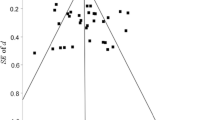Abstract
Meta-cognition plays an important role in acquiring expertise and transferring it. We recognize the necessity of building a learning scheme for developing meta-cognitive skills but much knowledge for it has not been acquired. The reason is that it is difficult for learners and instructors to discuss meta-cognitive skills as learning topics since the knowledge for performing meta-cognitive skills is quite tacit, latent and context dependent. Our goal is to build a new learning scheme to support meta-skill learning. In this paper, we firstly describe our basic idea on how to reify meta-cognitive skills as learning topics. We secondly clarify that the presentation task is useful for dealing with meta-cognitive skills as learning topics. Then we finally design a CSCL environment for building meta-cognitive skills.
Preview
Unable to display preview. Download preview PDF.
Similar content being viewed by others
References
Brown, A.L., Bransford, J.D., Ferrara, R.A., Campione, J.C.: Learning, Remembering, and Understanding. In: Markman, E.M., Flavell, J.H. (eds.) Handbook of child psychology. Cognitive Development, 4th edn., vol. 3, pp. 515–529. Wiley, New York (1983)
Flavell, J.H.: Metacognitive Aspects of Problem Solving. In: Resnick, L. (ed.) The nature of intelligence, pp. 231–235. Lawrence Erlbaum Associates, Hillsdale, NJ (1976)
Okamoto, N.: Review of Metacognitive Rsearch –from educational implications to teaching methiods. Journal of Japanese Society for Information and Systems in Education 19(3), 178–187 (2002)
Minto, B.: The Minto Pyramid Principle, Minto International Institute (2003)
Seta, K., Tachibana, K., Umano, M., Ikeda, M.: Basic consideration on reflection in problem-solving oriented learning. In: Proc. of the International Conference on Computers in Education (ICCE-03), Hong Kong, China, pp. 160–168 (2003)
Seta, K., Tachibana, K., Fujisawa, I., Umano, M.: An ontological approach to interactive navigation for problem-solving oriented learning processes. International Journal of Interactive Technology and Smart Education 1(3), 185–193 (2004)
Seta, K., Ikeda, M.: Design of an Environment for Developing Presentation Skills. In: Proc. of International Conference on Computer and Education (ICCE-03), pp. 29–36 (2006)
Author information
Authors and Affiliations
Editor information
Rights and permissions
Copyright information
© 2007 Springer-Verlag Berlin Heidelberg
About this paper
Cite this paper
Seta, K., Ikeda, M. (2007). Reification Method to Encourage the Learning Communication on Meta-Cognition. In: Apolloni, B., Howlett, R.J., Jain, L. (eds) Knowledge-Based Intelligent Information and Engineering Systems. KES 2007. Lecture Notes in Computer Science(), vol 4694. Springer, Berlin, Heidelberg. https://doi.org/10.1007/978-3-540-74829-8_96
Download citation
DOI: https://doi.org/10.1007/978-3-540-74829-8_96
Publisher Name: Springer, Berlin, Heidelberg
Print ISBN: 978-3-540-74828-1
Online ISBN: 978-3-540-74829-8
eBook Packages: Computer ScienceComputer Science (R0)




